Clarity is the first kindness.
Every leader eventually reaches a point where they know they need help — but what kind?
A sounding board? A guide? A specialist who can fix a pressing problem?
Understanding the difference between a coach, a mentor, and a consultant can save you time, money, and frustration — and help you build the right partnership for growth.
The Three Roles at a Glance
Coach – Partner in Clarity and Growth
A coach partners with you in a thought-provoking, creative process designed to help you gain clarity, uncover strengths, and align those strengths with strategy and action.
Coaches don’t give you answers — they help you find them.
Think of it as a structured conversation that surfaces your best thinking and turns insight into practical steps forward.
Best for:Leaders who want to build self-awareness, strengthen leadership habits, and make better decisions consistently.
Mentor – Guide and Role Model
A mentor is a more experienced professional who shares lessons learned, stories, and guidance that help you navigate your own path.
Mentorship blends practical advice with encouragement — helping you build confidence, identity, and perspective within your field. It’s typically a longer-term relationship built on trust and mutual respect.
Best for:Leaders entering new roles, navigating transitions, or developing maturity and confidence within their profession.
Consultant – Expert Problem-Solver
A consultant brings specialized expertise to address specific challenges or opportunities. They diagnose, recommend, and often help implement solutions.
Consultants are particularly valuable when you need speed, structure, or outside perspective to move a project forward. The relationship is more directive — the consultant helps carry part of the outcome and ensures execution aligns with your strategic goals.
Best for: Organizations tackling defined business challenges such as improving systems, refining strategy, or scaling operations.
When Each Is Most Useful
Coaching → When you need clarity and behavioral change from within.
Mentoring → When you’re entering new territory and need wisdom from experience.
Consulting → When you need external expertise and tangible results.
Each plays a vital role in leadership and organizational growth. The key is knowing where the answer lives — within you, in someone’s experience, or in specialized expertise.
How Each Engagement Typically Works
Coaching: Reflection and Action
Define the goal: Clarify what you want to accomplish and why.
Explore and experiment: Through powerful questions, reflection, and accountability, you test new approaches and build insight.
Sustain the gains: Over time, you develop self-coaching capacity and embed new leadership behaviors.
Results: Greater clarity, confidence, consistency, and improved communication.
Mentoring: Shared Experience
Connect and align: Choose a mentor who has lived your path.
Exchange stories and insights: Learn from their experiences and apply lessons to your context.
Grow into independence: Over time, you internalize the lessons and pay them forward.
Results: Faster growth, expanded networks, and stronger professional identity.
Consulting: Expertise and Delivery
Scope and diagnose: Identify the root issue and desired outcome.
Design the solution: The consultant provides data, recommendations, and a plan.
Implement and measure: Execute collaboratively, track impact, and refine as needed.
Results: Optimized systems, measurable business improvements, and strategic clarity.
Typical Outcomes
Mode | Core Benefit | Tangible Outcomes |
|---|---|---|
Coaching | Unlocks potential and clarity | Stronger leadership habits, improved decision-making, sustained personal growth |
Mentoring | Transfers wisdom and accelerates development | Career advancement, confidence, professional identity, expanded network |
Consulting | Provides expertise and implementation | Solved problems, measurable business results, scalable systems |
Choosing the Right Partner
Before engaging with anyone, ask yourself three key questions:
1. Where does the answer live?
– Within me → Coach
– In someone else’s experience → Mentor
– In external expertise → Consultant
3. Who owns the outcome?
– I do → Coach
– Shared → Mentor
– Consultant leads → Consultant
4. What kind of change am I seeking?
– Behavioral → Coach
– Developmental → Mentor
– Structural or operational → Consultant
Professional Standards and Why They Matter
These fields aren’t formally regulated — meaning anyone can call themselves a coach, mentor, or consultant.
That’s why professional standards and affiliations matter. They ensure ethical conduct, confidentiality, and competence.
Coaching – International Coaching Federation (ICF)
The ICF sets the global benchmark for coaching excellence.
Credentialed coaches follow strict ethics and evidence-based practices — focusing entirely on your goals, growth, and clarity.
Client Benefit: Confidentiality, competency, and a coaching process centered on your development.
Mentoring – European Mentoring & Coaching Council (EMCC)
The EMCC provides professional frameworks for both coaching and mentoring worldwide.
Accredited mentors emphasize reflection, supervision, and ethical practice.
Client Benefit:
Intentional, structured mentoring rooted in best practices and respect for your autonomy.
Consulting – Institute of Management Consultants USA (IMC-USA)
The IMC-USA certifies professionals through the Certified Management Consultant (CMC) credential — the only globally recognized consulting designation.
Members uphold ethics, integrity, and confidentiality while delivering actionable results.
Client Benefit:
Professionalism, objectivity, and measurable outcomes aligned with your goals.
The Bottom Line
The most successful leaders know which kind of help they need — and they choose intentionally.
Sometimes that’s:
A coach, to sharpen clarity and leadership presence.
A mentor, to share hard-earned wisdom.
A consultant, to deliver on a critical project.
Each plays a distinct role in your growth.
Before hiring anyone, ask yourself:
Do I need a mirror, a guide, or an expert?
That one question can save you months of confusion and accelerate your path to sustainable success.
[coach vs mentor vs consultant, difference between coach and mentor, leadership development, executive coaching, small business consulting, professional mentoring, leadership growth strategy]

